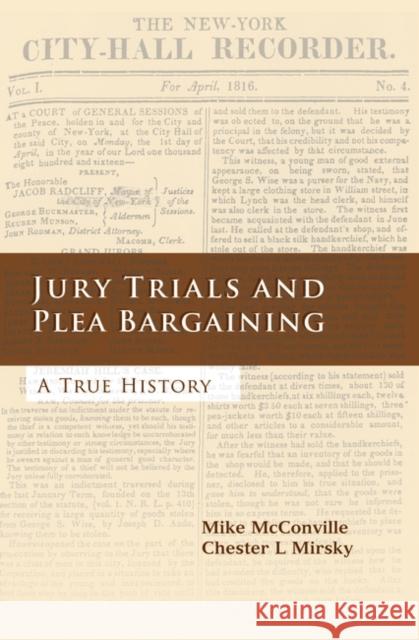Jury Trials and Plea Bargaining: A True History » książka
Jury Trials and Plea Bargaining: A True History
ISBN-13: 9781841135168 / Angielski / Twarda / 2005 / 392 str.
This book is a study of the social transformation of criminal justice, its institutions, its method of case disposition and the source of its legitimacy. Focused upon the apprehension, investigation and adjudication of indicted cases in New York City's main trial tribunal in the nineteenth century-the Court of General Sessions-it traces the historical underpinnings of a lawyering culture which, in the first half of the 19th century, celebrated trial by jury as the fairest and most reliable method of case disposition and then at the middle of the century dramatically gave birth to plea bargaining, which thereafter became the dominant method of case disposition in the United States. The book demonstrates that the nature of criminal prosecutions in everyday indicted cases was transformed, from disputes between private parties resolved through a public determination of the facts and law to a private determination of the issues between the state and the individual, marked by greater police involvement in the processing of defendants and public prosecutorial discretion. As this occurred, the structural purpose of criminal courts changed-from individual to aggregate justice-as did the method and manner of their dispositions-from trials to guilty pleas.











